30th October 2012
Great Symphonists or One-Hit Wonders?
Acknowledging a composer as being "great" is easy in some cases: Mozart for opera, Schubert for song, Handel for oratorio, Debussy for piano music. They each bore several historically-vetted masterpieces within those genres, proving their greatness beyond the shadow of doubt. Furthermore, each has a work that could be argued with relative ease to be the greatest representation of the form (Don Giovanni, Winterreise, The Messiah, Preludes to use the above examples).
The symphony has several easily identifiable masters with multiple legendary works to back their reputations up. Thirteen men (Haydn, Mozart, Beethoven, Schubert, Schumann, Brahms, Tschaikovsky, Bruckner, Mahler, Dvorak, Shostakovich, Sibelius, and Vaughan Williams) are responsible for something like 80 of the greatest and most popular 100 symphonies ever composed, a staggering ratio if there ever was one. What about the other 20 or so great symphonies written by people whose mastery isn’t such a guarantee? Can you be a great symphonist if you only wrote one? Can you be a great symphonist if you wrote several but only one is actually great?
Those questions lead to a few obvious archetypal figures that casual music fans would recognize instantly, five of them perhaps standing out more than the rest and providing a nice framework for the discussion. Coincidentally, or perhaps not so coincidentally, they are all Frenchmen, except one Belgian who spent his entire adult life in Paris: Berlioz, Bizet, Dukas, Franck, and Saint-Saens. Each of these composers is generally regarded, if not in the first tier of all-time legends, certainly within that nexus that exists below them. Upon further examination, it becomes clearer that we may just have an answer.
Berlioz
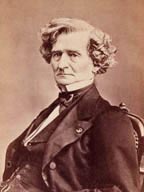
Berlioz is the easiest of the bunch to make a case for. Symphonie Fantastique[1], while obscuring the remainder of his symphonic output, is only the first of four symphonies that Berlioz completed, and two of the subsequent three are also entrenched in the standard repertoire pretty firmly (Harold In Italy and Romeo and Juliet). Frankly, though, had Berlioz never written another note of music after the end of Fantastique his place in the pantheon of great symphonists would be secure on the sheer magnitude of that work, which completely revolutionized the way in which the orchestra was used. Go back and listen to Beethoven’s famous Ninth Symphony and listen to the orchestration and consider that Fantastique came a mere five years later. It’s staggering, and it’s a testament to Berlioz’s originality and the power of drugs (Berlioz, who composed the Symphonie Fantastique in the midst of a series of opium-induced dreams, is perhaps the first and most famous example of the artist who produces a drug-fueled masterpiece, paving the way for The Chronic and Back to Black and Sgt. Pepper’s Lonely Hearts Club Band). Whatever the inspiration, Berlioz’s singular achievement is one of the cornerstones of Western music.
Bizet
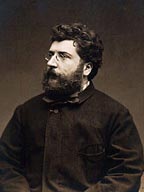
On the other end of the spectrum are Bizet and Dukas, each of whom contributed one of the greatest works of all-time to a particular genre (Carmen to opera, The Sorcerer’s Apprentice to the symphonic poem), neither of which was the symphony. Bizet attempted three, only one of which is still performed with even moderate regularity. His Symphony in C[2] is a bit of a hidden gem, a delightful piece firmly in the classical mold, but with Bizet’s gift for melody thrown in for good measure. The second movement in particular is stunning in its beauty, a gorgeous song with an extended solo for the oboe that gets me every time.
Dukas
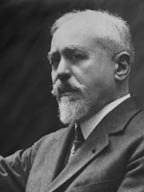
Dukas, for his part, only completed one (there were plans for a second that never materialized), likewise in C, and likewise performed semi-regularly at best[3]. It too is a surprisingly great piece filled with the many colors and textures familiar in Dukas’ more famous works. Truth be told, it must be pretty good to have survived the purge against the music of Dukas by the man himself, who destroyed or abandoned an insane amount of his life’s work in his later years (only 14 published works remain, about 1/3 of his completed and projected output).
Franck
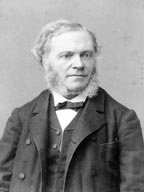
Squarely in the middle of this discussion, and consequently the most difficult figures to assess, are Franck and Saint-Saens, and they ultimately get to the core of the question at hand. Franck, like Dukas, only attempted one symphony, the Symphony in D minor[4], but it is a masterpiece. It was immensely popular 40 and 50 years ago as a staple of the symphonic repertoire and remains popular today, though it has somehow drifted a bit into “light classical” territory for reasons I don’t understand. It’s hard to argue with the logic that someone who tries something once and kinda nails it is anything other than great at it. I suppose you could counter with the argument that a guy who hits a blindfolded half-court shot to win $10,000 is better than Michael Jordan, but for that analogy to hold, the guy who hit the half-court shot would have had to already demonstrate that he was great at what he was doing (shooting a basketball), which Franck had more than accomplished when it came to writing music.
Messiaen
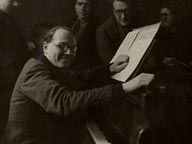
Another obvious composer who fits this description is Olivier Messiaen, who only took one stab at a symphony and with his Turangalîla Symphony[5] managed to produce one of the five greatest symphonies of the 20th century. Regardless of how great these (literally) singular achievements may be, however, doesn’t an artist or performer have to replicate that success as a form of validation for the previous success? We wouldn’t consider Michael Jordan the greatest of all-time had he played only one season, even if he had been MVP and won the championship. We would have wondered why he didn’t do it again, right?
Saint-Saens
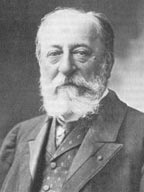
The case for Saint-Saens is the trickiest of all, because he wrote five symphonies but only one remains even remotely popular. But the popularity of his Organ Symphony (Symphony No. 3)[6] is anything but remote – it is a crowd-pleaser of the highest order and is performed at virtually the same rate as the most popular works of unquestioned symphonic masters like Dvorak or Schubert. The Organ Symphony, while revolutionary in its own right (both formally and in its use of the organ), did not have the same earth-shattering impact on future composers that Fantastique did, so it can really only be judged on its own merits as a piece of music, but those merits are probably above much reproach. It is a 35-minute tour-de-force, filled to the brim with inventiveness and beauty, manic energy and raw power, simply put, one of the very greatest pieces of music I know.
Because I equate almost everything in life to some sport or other, my thoughts drift to Timmy Smith, the former Washington Redskins running back. Smith had an almost stereotypically uninteresting career in the NFL, washing out of the league after only three seasons with 653 yards from scrimmage and 3 touchdowns on his regular season resume. But for one day, 31 January 1988, Timmy Smith was at the top of the football world, rushing for 204 yards and 2 touchdowns in Super Bowl XXII, a game his team won 42-10. His performance that day set an all-time record for rushing yards in a Super Bowl, a record that still stands to this day and that places Smith number one on a list that includes legends like Emmitt Smith, Thurman Thomas, Larry Csonka, Franco Harris, John Riggins, and Marcus Allen. Was Timmy Smith a great running back? Not really, but don’t tell that to the 1987 Denver Broncos. To that same end, I would argue that Saint-Saens was not a great symphonist but he obviously had what it took to be one. There may be a thousand reasons why his other symphonies never matched the level of artistry that his Third did, but ultimately his symphonies remain something of a promise left unfulfilled.
Defining greatness is always difficult when the figure in question is not a transcendent talent like Bach, Kubrick, Roosevelt, or Montana, but history has a way of sifting the artistic wheat from the chaff, and it pays no quarter to where it comes from. If it’s good, or at least notable, we as a civilization will find it, even if we won’t always assign it the meaning or value that it deserves (or doesn’t deserve). EMF[7] (shout-out to my fellow Generation Whatever-We’re-Called peeps!) is not a good rock band, but “Unbelievable” is as popular and well-put-together as any given song by Nirvana or Pearl Jam, so we can unquestionably say that the lads from EMF are capable of writing a great rock song, just not as many or as consistently as their much better counterparts. Ultimately, that consistency is what true greatness actually is. History shows us that time and again, from sports to movies to music to politics to literature to science. Anyone can achieve greatness in a given moment or work, but only the greatest among us can stay there.
- ^ Recommended recording: Berlioz: Symphonie Fantastique, Charles Munch/Boston Symphony Orchestra.
- ^ Recommended recording: Bizet: Symphony in C, Otmar Suitner/Staatskapelle Berlin (paired with the Franck and Saint-Saens as well!).
- ^ Recommended recording: Dukas: Symphony in C, Walter Weller/London Philharmonic (paired with another one-hit wonder, d’Indy’s ‘Symphony on a French Mountain Air’).
- ^ Recommended recording: Franck: Symphony in D minor conducted by Kiril Kondrashin with the Bavarian Radio Symphony Orchestra.
- ^ Recommended recording: Messiaen: Turangalîla Symphony conducted by Antoni Wit.
- ^ Recommended recording: Saint-Saens: Symphony No. 3 ‘Organ’ (Saint-Saens’ complete symphonies – hear the difference!) Jean Martinon/ORTF National Orchestra.
- ^ EMF: Schubert Dip (MP3)
blog comments powered by Disqus
PREVIOUSLY ON SYMPHS
Menu
Features
Playlists
- Periodic table of symphonies
- Greatest 20th-century symphonies
- Greatest Finnish symphonies
- Ten greatest Haydn symphonies
Discoveries
blog comments powered by Disqus
